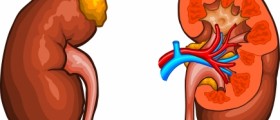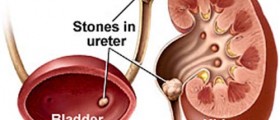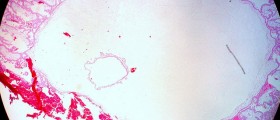
Symptoms Small kidney stones usually have no symptoms, and you usually pass them without problem. Kidney stones that get stuck in the kidney, causes an infection, or a bigger stone that passes through the ureter, will. Sharp abdominal pain is one of the primary symptoms of kidney stones, along with an increase in the frequency of urination (which is confusing, because that is common during pregnancy anyway), and blood in the urine. You may also feel nauseous, which is another symptoms that's easy to misread.
Diagnosing kidney stones during pregnancy Diagnosing kidney stones is extremely hard during pregnancy when a woman suddenly experiences severe abdominal pain, it's logical that doctors will focus on possible pregnancy complications instead. In addition, the uterus and baby may block the view of other internal organs. X-ray, the preferred method to diagnosed kidney stones, is dangerous during pregnancy so ultrasound is the most common alternative. MRI is another possibility. Abdominal pain, particularly in women who are expecting a baby, can be caused by so many things that misdiagnosis is not that uncommon. If you suspect you have kidney stones, ultrasound and a urine test is generally the best combination of diagnostic tools.
Kidney stones and pregnancy Unfortunately, some treatments for kidney stones are not safe during pregnancy. Make sure that you discuss this in detail with your doctor. An OBGYN should certainly be part of your medical team when deciding about kidney stone treatment during pregnancy. Lots of water, antibiotics, and painkillers may be the treatment of choice, unless the affected kidney becomes infected or the risk of infection is present. Surgical treatment is risky, because it can trigger premature labor in some cases. Again, talking to your doctor about the benefits and risk of each possibility is hugely important.
















Your thoughts on this
Loading...